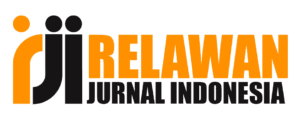Generation Z Instagram Activism: Between Slacktivism And Online Civic Engagement In Indonesia’s Democracy
Abstract
This study analyzes how Generation Z's digital activism through Instagram during the August–September 2025 demonstrations reflects substantive civic participation. A mixed-method approach with a sequential explanatory design was used. Quantitative data were analyzed using simple linear regression, and qualitative data were examined through thematic analysis. The study involved 200 Generation Z respondents selected through purposive sampling. The results indicate a statistically significant relationship between Instagram digital activism and online civic engagement (r = 0.818; p < 0.001). Approximately 66.9% of the variation in civic engagement is explained by digital activism. Qualitative findings reveal that Generation Z's digital activism transcends symbolic slacktivism and demonstrates substantive civic participation. Through Instagram features such as Stories, Reels, and templates, they disseminate information, shape public opinion, and coordinate real actions both online and offline. Instagram functions as a strategic medium for reflective and transformative civic engagement, showing that digital participation can evolve into meaningful social movements within the digital democracy ecosystem. Future research should include other social media platforms, expand the sample, and examine digital literacy as a mediating variable.
References
Amaral, I., & Ventura, D. (2025). Digital Youth Activism on Instagram: Racial Justice, Black Feminism, and Literary Mobilization in the Case of Marley Dias. Journalism and Media, 6(3), 104. https://doi.org/10.3390/journalmedia6030104
Barley, W. C., Treem, J. W., & Leonardi, P. M. (2020). Experts at Coordination: Examining the Performance, Production, and Value of Process Expertise. Journal of Communication, 70(1), 60–89. https://doi.org/10.1093/joc/jqz041
Brandtzaeg, P. B., Mainsah, H., & Følstad, A. (2012). Designing for youth civic engagement in social media. In P. Kommers, P. Isaías, & N. Bessis (Eds.), IADIS International Conferences Web Based Communities and Social Media and Collaborative Technologies 2012. IADIS International Conferences Web Based Communities and Social Media and Collaborative Technologies 2012.
Cabrera, N. L., Matias, C. E., & Montoya, R. (2017). Activism or slacktivism? The potential and pitfalls of social media in contemporary student activism. Journal of Diversity in Higher Education, 10(4), 400–415. https://doi.org/10.1037/dhe0000061
CNBC. (2025). Kronologi Demo 25-29 Agustus: Demo DPR Melebar Jadi Amarah ke Polisi. CNBC Indonesia.
Coddington, M. (2015). Clarifying Journalism’s Quantitative Turn. Digital Journalism, 3(3), 331–348. https://doi.org/10.1080/21670811.2014.976400
Cortés-Ramos, A., Torrecilla García, J. A., Landa-Blanco, M., Poleo Gutiérrez, F. J., & Castilla Mesa, M. T. (2021). Activism and Social Media: Youth Participation and Communication. Sustainability, 13(18), 10485. https://doi.org/10.3390/su131810485
Erfain. (2025). Strategi Sivil Society dalam Pendidikan Politik Inklusif untuk Menguatkan Civic Engagement Generasi Z. Journal of Humanities, Social …, 1(4), 140–151. https://jurnal.yayasanmeisyarainsanmadani.com/index.php/JHUSE/article/view/226%0Ahttps://jurnal.yayasanmeisyarainsanmadani.com/index.php/JHUSE/article/download/226/145
Ferreira, C. H. G., Murai, F., Silva, A. P. C., Almeida, J. M., Trevisan, M., Vassio, L., Mellia, M., & Drago, I. (2021). On the dynamics of political discussions on Instagram: A network perspective. Online Social Networks and Media, 25, 100155. https://doi.org/10.1016/j.osnem.2021.100155
Gherguț-Babii, A.-N., Poleac, G., & Obadă, D.-R. (2025). Challenges for NGO Communication Practitioners in the Disinformation Era: A Qualitative Study Exploring Generation Z’s Perception of Civic Engagement and Their Vulnerability to Online Fake News. Journalism and Media, 6(3), 136. https://doi.org/10.3390/journalmedia6030136
Guess, A. M., Lerner, M., Lyons, B., Montgomery, J. M., Nyhan, B., Reifler, J., & Sircar, N. (2020). A digital media literacy intervention increases discernment between mainstream and false news in the United States and India. Proceedings of the National Academy of Sciences, 117(27), 15536–15545. https://doi.org/10.1073/pnas.1920498117
Habibullah, J. A., Norvaizi, I., & Dewi, D. E. C. (2025). Implementasi Mixed Methods dalam Penelitian Pendidikan: Konsep dan Aplikasinya. Peradaban Journal of Interdisciplinary Educational Research, 3(1), 17–31. https://doi.org/10.59001/pjier.v3i1.245
Haris, A., Aksa, Y. A. D., & Prastyo, A. B. (2024). The Influence of Social Media Instagram on Generation Z’s Political Participation. Paradigma, 21(1), 189–202. https://doi.org/10.33558/paradigma.v21i1.8814
Iyengar, S., Lelkes, Y., Levendusky, M., Malhotra, N., & Westwood, S. J. (2019). The Origins and Consequences of Affective Polarization in the United States. Annual Review of Political Science, 22(1), 129–146. https://doi.org/10.1146/annurev-polisci-051117-073034
Jones, C. (2015). Slacktivism and the social benefits of social video: Sharing a video to ‘help’ a cause. First Monday. https://doi.org/10.5210/fm.v20i5.5855
Joyce, M. (2010). Digital Activism Decoded: The New Mechanics of Change. New York & Amsterdam: International Debate Education Association.
Jude, A. V., & P, P. (2025). Social media activism: Delving into Generation Z’s experiences. Communication Research and Practice, 1–18. https://doi.org/10.1080/22041451.2025.2554375
Kim, E., & Yang, S. (2016). Internet literacy and digital natives’ civic engagement: Internet skill literacy or Internet information literacy? Journal of Youth Studies, 19(4), 438–456. https://doi.org/10.1080/13676261.2015.1083961
Klinger, U., & Svensson, J. (2015). The emergence of network media logic in political communication: A theoretical approach. New Media & Society, 17(8), 1241–1257. https://doi.org/10.1177/1461444814522952
Kompas.com. (n.d.). Tingkah Laku dan Pernyataan Anggota DPR yang Buat Rakyat Marah. Retrieved September 15, 2025, from https://nasional.kompas.com/read/2025/08/26/09004551/tingkah-laku-dan-pernyataan-anggota-dpr-yang-buat-rakyat-marah?page=all
Lee, S. J., Hwang, E., Yuk, H., & De Villiers, R. (2025). Navigating negative emotions: The role of negativity bias in digital activism. International Journal of Market Research, 67(5), 630–653. https://doi.org/10.1177/14707853251350548
Leonel, R., Rehbein, K., Westermann‐Behaylo, M., & Perrault, E. (2023). Firms’ Response to Slacktivism: When and Why are E‐Petitions Effective? Journal of Management Studies. https://doi.org/10.1111/joms.13010
Loader, B. D., Vromen, A., & Xenos, M. A. (2014). The networked young citizen: social media, political participation and civic engagement. Information, Communication & Society, 17(2), 143–150. https://doi.org/10.1080/1369118X.2013.871571
Milošević-Đorđević, J. S., & Žeželj, I. L. (2017). Civic activism online: Making young people dormant or more active in real life? Computers in Human Behavior, 70, 113–118. https://doi.org/10.1016/j.chb.2016.12.070
Moon, S. J., & Bai, S. Y. (2020). Components Of Digital Literacy As Predictors Of Youth Civic Engagement And The Role Of Social Media News Attention: The Case Of Korea. Journal of Children and Media, 14(4), 458–474. https://doi.org/10.1080/17482798.2020.1728700
Mulyono, B. (2020). Initiating the Engagement of Young Citizens in a Quality Politics in the Social Media Era. Proceedings of the 2nd Annual Civic Education Conference (ACEC 2019). https://doi.org/10.2991/assehr.k.200320.012
Oden, A., & Porter, L. (2023). The Kids Are Online: Teen Social Media Use, Civic Engagement, and Affective Polarization. Social Media + Society, 9(3), 631. https://doi.org/10.1177/20563051231186364
Pandit, M., Magadum, T., Mittal, H., & Kushwaha, O. (2025). Digital Natives, Digital Activists: Youth, Social Media and the Rise of Environmental Sustainability Movements. In arXiv preprint arXiv:2505.10158. https://doi.org/https://doi.org/10.48550/arXiv.2505.10158
Pathak-Shelat, M., & Bhatia, K. V. (2019). Young people as global citizens: negotiation of youth civic participation in adult-managed online spaces. Journal of Youth Studies, 22(1), 87–107. https://doi.org/10.1080/13676261.2018.1483074
Penney, J. (2015). Social Media and Symbolic Action: Exploring Participation in the Facebook Red Equal Sign Profile Picture Campaign. Journal of Computer-Mediated Communication, 20(1), 52–66. https://doi.org/10.1111/jcc4.12092
Puplampu, A., & Macpherson, I. (2023). Reassessing Clicktivism. In Virtual Identities and Digital Culture (pp. 48–56). Routledge. https://doi.org/10.4324/9781003310730-6
Rachimoellah, M., Lubis, P. H., & Utimadini, N. J. (2024). Digital Activism and Political Change: Challenges of Social Media’s Impact on Political Development. Jurnal of Middle East and Islamic Studies, 11(2). https://doi.org/10.7454/meis.v11i2.177
Ramadlan, M. F. S., & Aminuddin, M. F. (2025). Student Activism In Post-Authoritarian: Higher Education Reform, Movement Dynamics, And Shifting Political Narrative. JWP (Jurnal Wacana Politik), 10(3), 313–327. https://doi.org/10.24198/jwp.v10i3.51485
Rezaei, M., & Owens, P. E. (2023). Young Humans Make Change, Young Users Click: Creating Youth-Centered Networked Social Movements. Supporting Social Movements through HCI and Design Research, 1(1), 1–6. http://arxiv.org/abs/2303.07541
Scotto di Carlo, G. (2023). Activism or slacktivism? Journal of Language and Politics, 22(2), 204–224. https://doi.org/10.1075/jlp.22025.sco
Štětka, V., & Mazák, J. (2014). Whither slacktivism? Political engagement and social media use in the 2013 Czech Parliamentary elections. Cyberpsychology: Journal of Psychosocial Research on Cyberspace, 8(3). https://doi.org/10.5817/CP2014-3-7
Suyato, S., Hidayah, Y., Arpannudin, I., & Septiningrum, L. (2023). Revitalisasi Pendidikan Kewarganegaraan Abad 21: Analisis Keterampilan Abad 21. SOCIA: Jurnal Ilmu-Ilmu Sosial, 19(2), 78–84. https://doi.org/10.21831/socia.v19i2.60152
Tarsidi, D. Z., Suryadi, K., Budimansyah, D., & Rahmat, R. (2023). Social media usage and civic engagement among Indonesian digital natives: An Analysis. Jurnal Civics: Media Kajian Kewarganegaraan, 20(2), 257–269. https://doi.org/10.21831/jc.v20i2.60812
Utami, F. T., & Zanah, M. (2021). Youtube Sebagai Sumber Informasi Bagi Peserta Didik di Masa Pandemi Covid-19. Jurnal Sinestesia, 11(1), 78–84. https://doi.org/10.53696/27219283.64
Valenzuela, S., Park, N., & Kee, K. F. (2009). Is There Social Capital in a Social Network Site?: Facebook Use and College Students’ Life Satisfaction, Trust, and Participation. Journal of Computer-Mediated Communication, 14(4), 875–901. https://doi.org/10.1111/j.1083-6101.2009.01474.x
Wui, M. G. L., Claudio, J. S. R., Zhang, J., Reyes, C. R. R., Reyes, R. T. M., & Leviste, E. N. P. (2025). Role of Classroom Openness in Digital Literacy and Online Civic Engagement Among Filipino High School Students. Journal of Applied Youth Studies, 8(2), 287–306. https://doi.org/10.1007/s43151-025-00169-y
Yusuf, N., & Wibowo, A. P. (2021). Civic engagement: Digital activism of university students in Malang amidst covid-19 pandemic. Jurnal Civics: Media Kajian Kewarganegaraan, 18(2), 286–295. https://doi.org/10.21831/jc.v18i2.41499
Zait, A., & Andrei, A. G. (2019). Civic Engagement at the Crossroads of Online and Offline Spaces: A PLS-SEM Assessment. Scientific Annals of Economics and Business, 66(4), 559–572. https://doi.org/10.47743/saeb-2019-0045
Zakaria, D. (2022). Praktik Kewargaan Digital Sebagai Edukasi Publik: Kajian Aktivisme Digital Di Indonesia. Jurnal Komunikasi Profesional, 6(6), 631–644. https://doi.org/10.25139/jkp.v6i6.5293
Copyright (c) 2025 Journal of Governance and Local Politics (JGLP)

This work is licensed under a Creative Commons Attribution-NonCommercial-NoDerivatives 4.0 International License.










